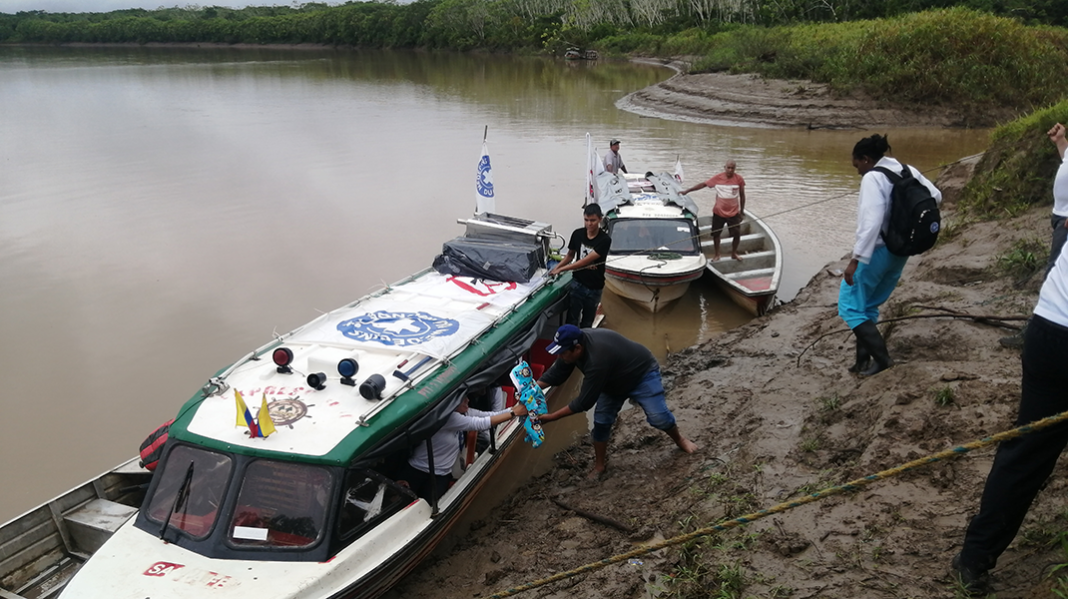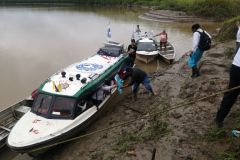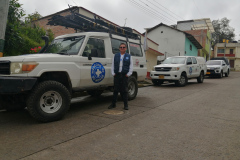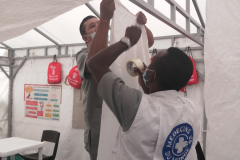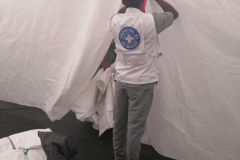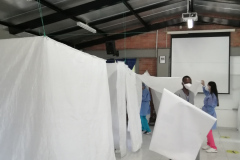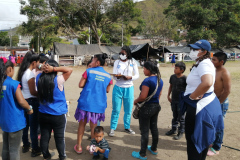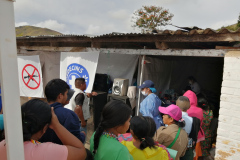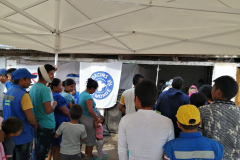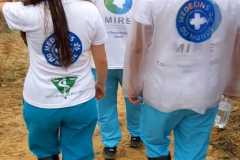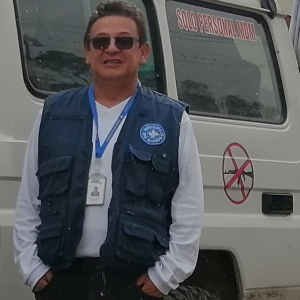
Field psychologist
Flying Team
I started working with MdM France in February 2007, I have 13 years of work as a field psychologist, with the Colombia Mission in the departments of Meta and Guaviare. I also supported the bases in Tumaco (Nariño), Cali, Chocó, and Ipiales (Nariño). I work in areas of armed conflict, Right to health with migrant population.
More than a decade working with mental health and psychosocial support, in different Colombian and intercultural contexts.
Previously I worked as a nursing assistant, in an emergency clinic in the city of Tunja, at the same time I was studying psychology. I worked at night and studied during the day.
Later I finished my studies in psychology with emphasis on Social and Community psychology, and I started working with the National Institute of Health.
When I saw that the Pan American Health Organization (PAHO) had a call for MdM-France Colombia Mission, I applied and passed.
I had the opportunity to be a Community health referent in the projects of Meta, Guaviare, Tumaco, and Nariño.
My daily activities in a «normal day»
On the days we are in the field, the team of doctors, nurses, logisticians, and psychologists gets up at 5 a.m. In some sites there is only one bathroom (when there is one) to shower, so we have little time since all of us need to get ready. Afterwards we go for breakfast and around 7 a.m. the clinics or sites where we do the individual consultations are already set up.These places are usually community halls, “Malocas” or indigenous houses, or meeting rooms. There we set up individual spaces to ensure the privacy of the people. This is done with poly-shade mesh or tarpaulin by the logisticians, supported by the medical staff.
We start by introducing the team, explaining the humanitarian principles and what we do in mental health and psychosocial support. Then we actively identify cases, through workshops and talks. Individual consultations are also available to provide mental health and psychosocial support as well as VTP (voluntary termination of pregnancy).
We talk to community leaders, teachers, and community action boards to carry out workshops on Psychological First Aid, prevention of Gender Based Violence, and referral pathways in case of sexual abuse, among others.
We also build bridges with institutions to make referrals of the most severe mental health cases, activate care pathways and restitution of human rights.
We attend about 7-8 people individually and we do 1 to 2 workshops or talks according to needs. Afterwards, at 5 p.m. we end the activities.
The most interesting part of my job…
I like everything about my job: reaching areas where the state has no presence, reaching communities in areas of armed conflict, supporting migrants, meeting people whose human rights have been violated, helping survivors of gender-based violence…
MdM France is my school in humanitarian work.
I have worked with Indigenous Communities: the Emberá of Chocó; the Emberá Chami of Valle del Cauca; the Nukak Maku of the department of Guaviare; the Wounaan indigenous people; indigenous peoples living on the banks of the San Juan River; the Jiw, who are located in Barrancón and Caño la Sal (in the departments of Guaviare and Meta); the Awá communitiesm that are located between the border of Colombia and Ecuador… among other indigenous peoples and communities.
I have also worked with Afro communities in Chocó, Tumaco and Valle del Cauca.
I know and have worked in almost all the teams of MdM-France Colombia Mission, as well as with LGTBIQ+ populations, peasant population, displaced people, victims of the armed conflict (restitution of rights).
The anecdotes are pleasant and others not so much… I have been in bombing, crossfire, controlled detonation of anti-personnel mines, internal displacement of communities…
The people in the communities were the happiest because MdM came to provide psychosocial accompaniment, they felt safer because we were providing care. It is for this reason that in the same communities we were jokingly called the “Doctors of the Mountain”, because we went to the areas after clashes, and where the other NGOs did not want to go.
We also did the first VTP counseling sessions in the communities and performed the first VTPs. When they could not be done in the field, we provided psychosocial accompaniment unti Bogotá, where the voluntary interruption of pregnancy was performed, and then we took them back to the communities.
These are my anecdotes in MdM-France Colombia Mission.


